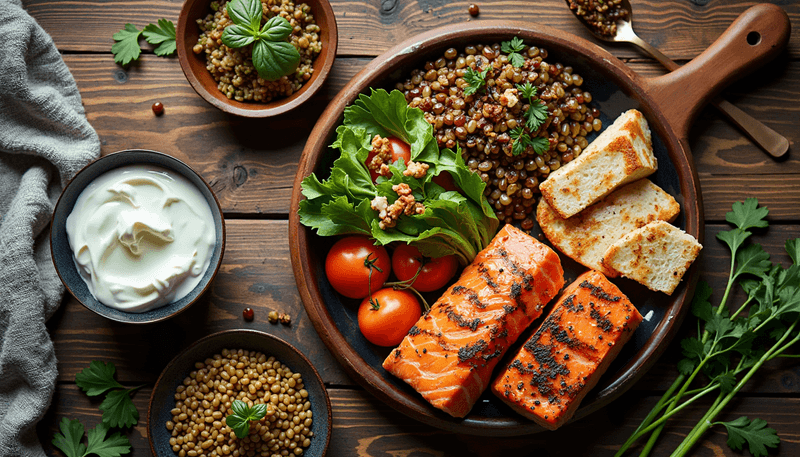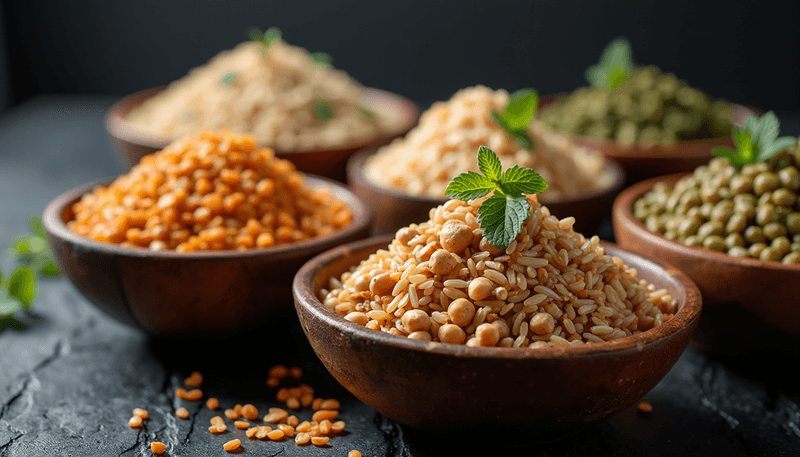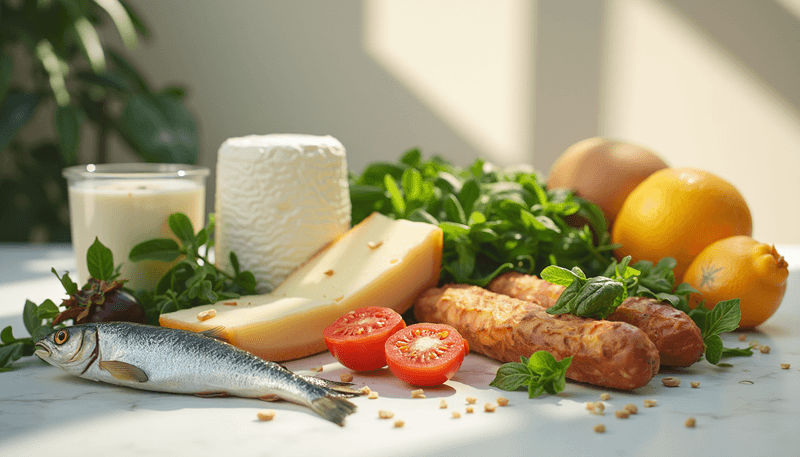Food Choices That Make Menopause Better

Standing in front of my mirror at age 45, I noticed changes that seemed to appear overnight - the extra weight around my middle, the mood swings, and those frustrating hot flashes. As a health writer, I knew these changes weren't just in my head. A groundbreaking research paper published in Nutrients reveals that what we eat during menopause can significantly impact how we experience this natural transition.
The Hidden Power of Protein in Menopause
During menopause, our bodies undergo a dramatic shift in how they process nutrients. One of the most significant changes involves protein utilization. Research shows that women need between 0.8-1.2 grams of protein per kilogram of body weight daily - that's about 54-81 grams for a 150-pound woman.
Have you ever wondered why maintaining muscle mass becomes harder after 45?
Think of your muscles as a savings account. Before menopause, estrogen helped maintain your "balance" with minimal deposits. Now, you need to make more regular "deposits" through protein intake to maintain the same balance. Good protein sources include:
- Greek yogurt (15g per 6oz serving)
- Lentils (18g per cup)
- Fish (22g per 3oz salmon)
- Chicken breast (26g per 3oz)
- Tofu (10g per 1/2 cup)
Smart Carbohydrate Choices for Blood Sugar Balance
The relationship between menopause and blood sugar is like a delicate dance. As estrogen levels drop, our cells become less responsive to insulin, making blood sugar management more challenging. This is where the quality of carbohydrates becomes crucial.
The Fiber Factor: Aim for 30-45 grams of fiber daily through:
- Whole grains (oats, quinoa, brown rice)
- Legumes (beans, lentils)
- Vegetables (especially leafy greens)
- Fruits (berries, apples, pears)
Think of fiber as your internal traffic controller. It helps slow down sugar absorption, preventing those energy crashes that can worsen hot flashes and mood swings.
The Calcium-Vitamin D Connection
One of the most overlooked aspects of menopausal nutrition is the synergy between calcium and vitamin D. When estrogen levels drop, our bones become more vulnerable to osteoporosis.
Did you know that your body can only absorb calcium effectively when vitamin D levels are adequate?
Think of vitamin D as the key that unlocks the door for calcium to enter your bones. Without enough vitamin D, calcium simply passes through your system unused. Here's how to optimize this partnership:
Daily Targets:
- Calcium: 1000-1200mg
- Vitamin D: 2000 IU (especially important from October to March)
Sources of Calcium:
- Dairy products (yogurt, milk, cheese)
- Leafy greens (kale, collard greens)
- Fish with bones (sardines, canned salmon)
- Fortified plant milk
Vitamin D Sources:
- Sunlight exposure (15-20 minutes daily when possible)
- Fatty fish
- Egg yolks
- Fortified foods
Last week, one of my readers shared how implementing these nutritional strategies transformed her menopausal experience. "I used to wake up three times a night with hot flashes," she said. "After three months of focusing on protein timing and smart carb choices, I'm sleeping through the night and feeling more energetic during the day."
What small change could you make this week to improve your menopausal nutrition?
The journey through menopause is unique for each woman, but nutrition remains a powerful tool for managing symptoms and maintaining health. Start with one change - perhaps adding an extra serving of protein at breakfast or swapping refined grains for whole ones. Your body will thank you with better energy, more stable moods, and fewer hot flashes.
Your Next Step: Choose one meal tomorrow where you'll add a serving of protein and fiber-rich food. Notice how it affects your energy levels and any menopausal symptoms you experience.

Amelia Grace Okonkwo
Amelia Grace Okonkwo is a freelance health writer and author with over 15 years of experience in health journalism, specializing in women's health and autoimmune disorders. With a background in biology and a Master’s in Public Health from Johns Hopkins, she combines scientific accuracy with a storytelling approach to make health information accessible and empowering. Amelia is known for her bestselling book, "The Skin We're In," which explores autoimmune disorders and their impact. She is passionate about delivering practical health insights for women, addressing topics from midlife wellness to mental health.







